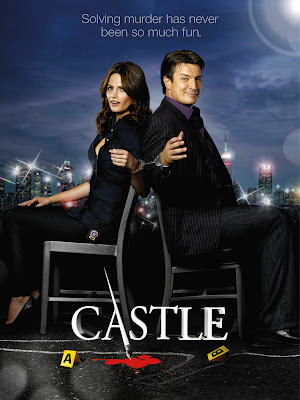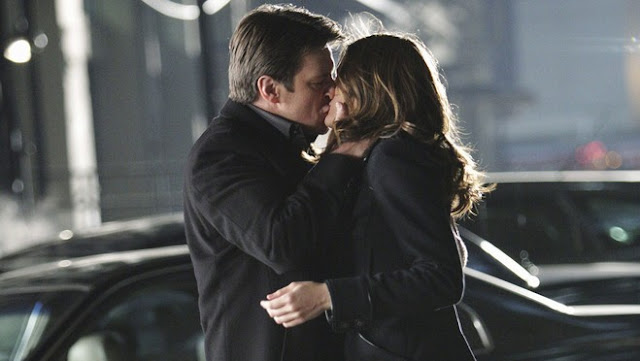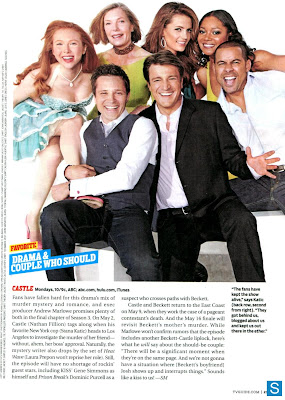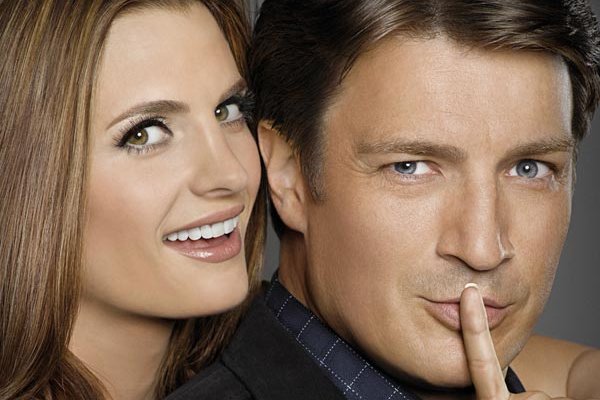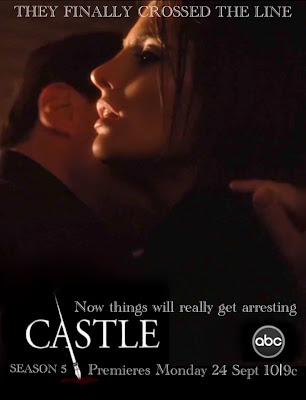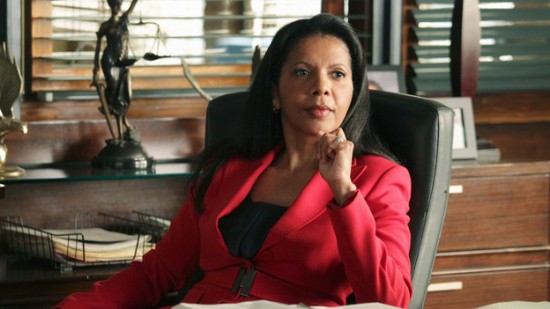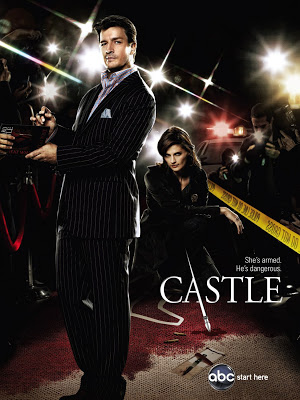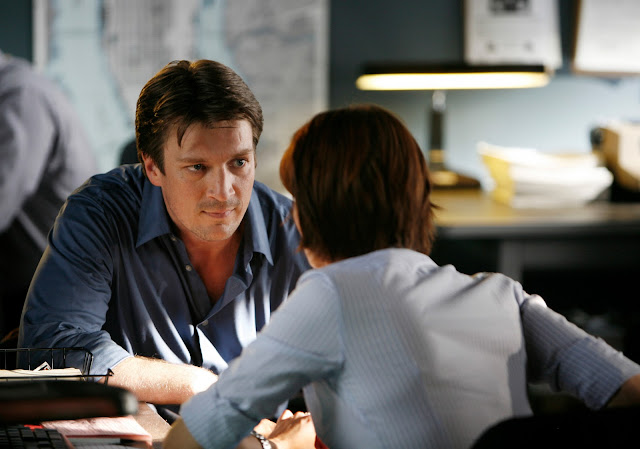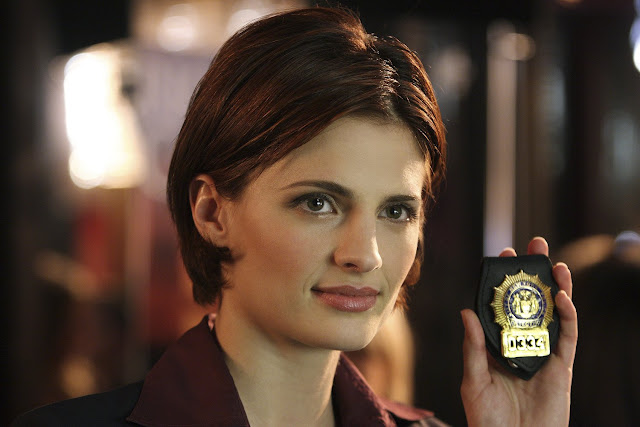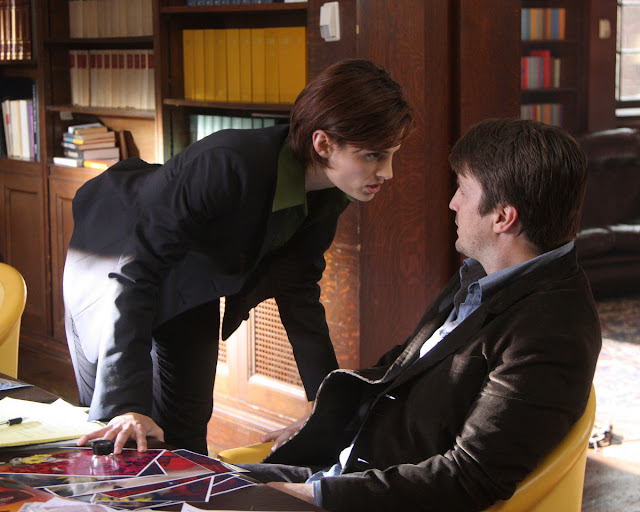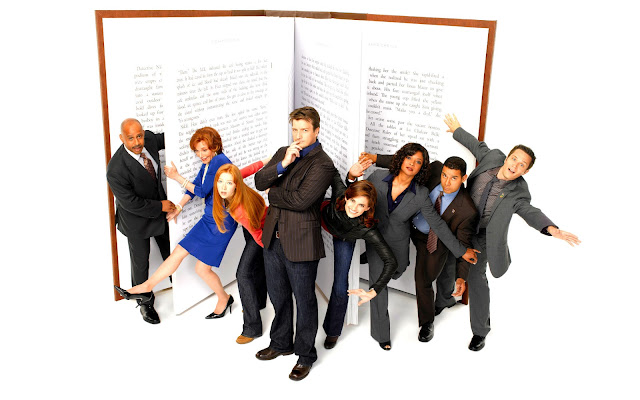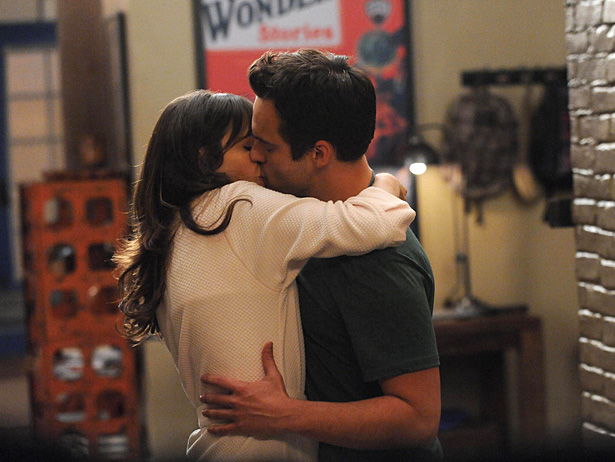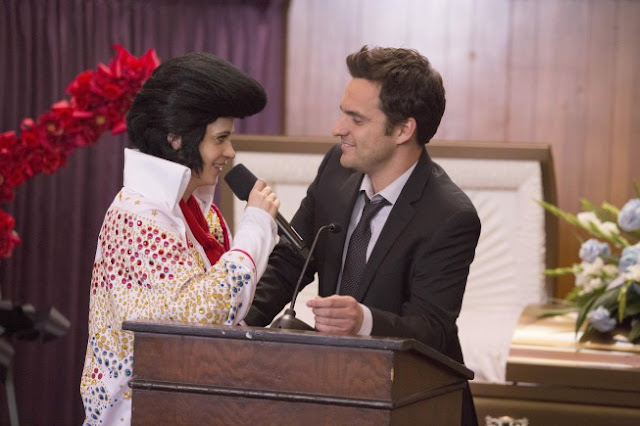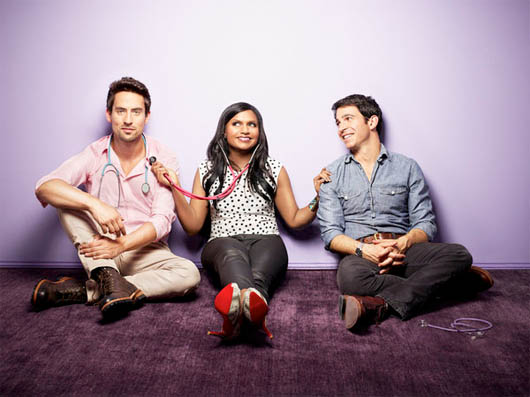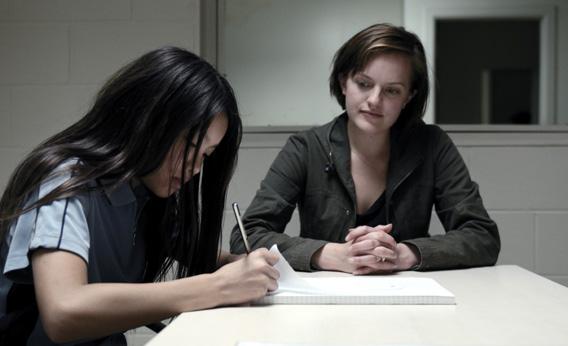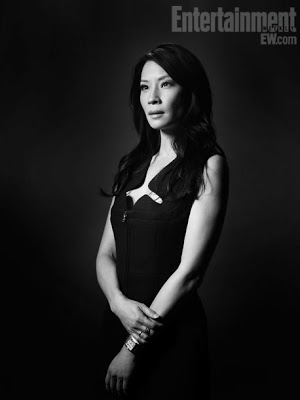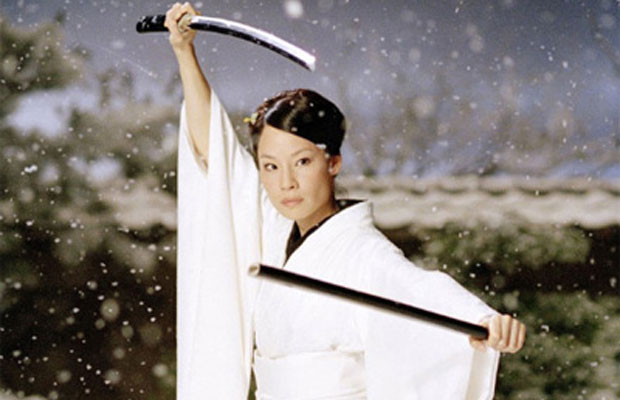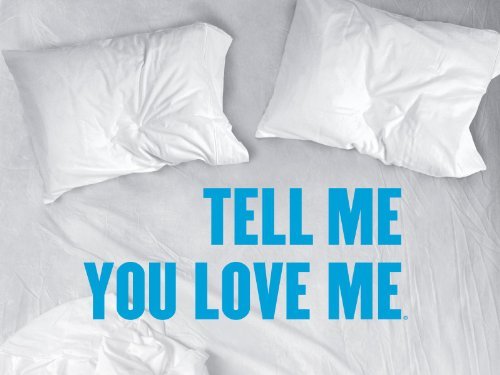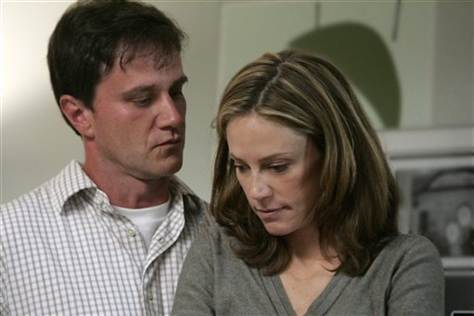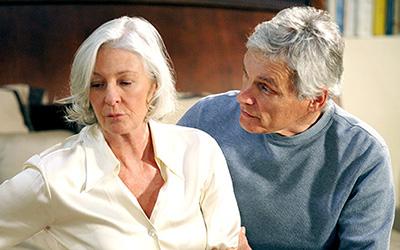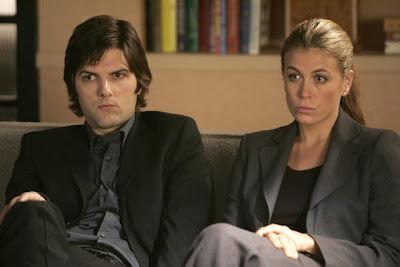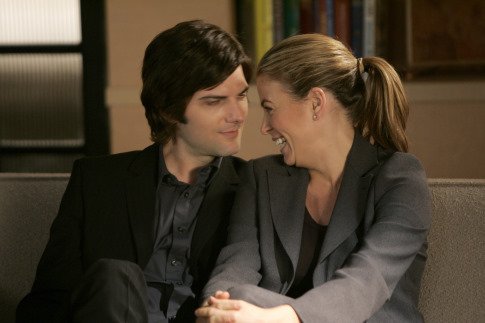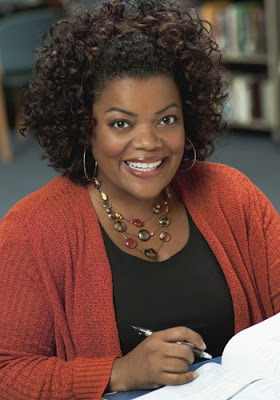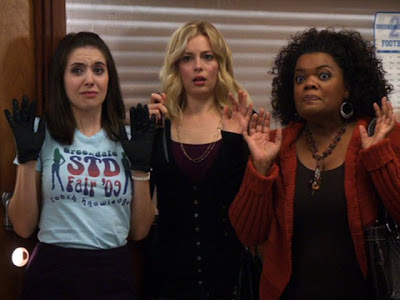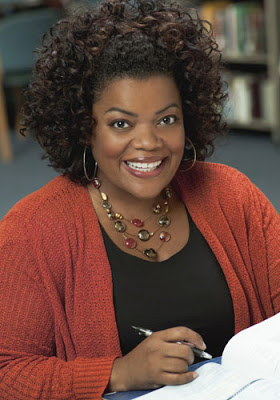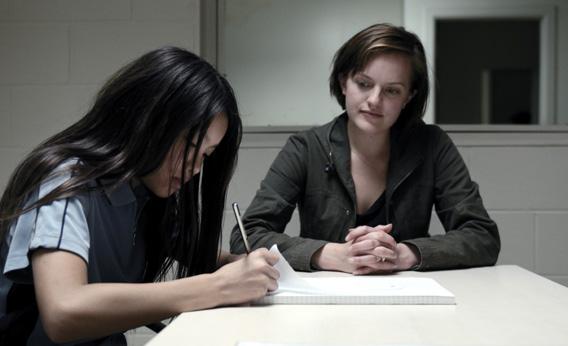 |
| Jacqueline Joe as Tui and Elisabeth Moss as Robin Griffin in Top of the Lake |
This guest post by Lauren C. Byrd previously appeared at her blog Love Her, Love Her Shoes and is cross-posted with permission.
You know there’s a Maori legend about this lake… that there’s a demon’s heart at the bottom of it; the beats makes the lake rise and fall every five minutes.
A young girl bikes away from her home, heading through beautiful scenery until she reaches the edge of a large lake. She wades in up to her shoulders. Cut to two shirtless men, muscled and tattooed. Immediately, the feminine: the girl; water is compared to the masculine: men, muscles, tattoos.
These gender-based opening images of the Sundance Channel series, Top of the Lake, set the scene and the ongoing conflict for the New Zealand-based show. Jane Campion, a director known for her feminist take on period dramas (The Piano, Bright Star), injects a feminist element into a police drama, a genre known for viewing women as victims. With Campion at the helm, the series does not shy away from uncomfortable issues, such as the frustrations of living in a patriarchal rape culture.
In the first episode, Tui (Jacqueline Joe), the 12-year-old girl who waded deep into the lake, is discovered to be pregnant. Robin Griffin (Elisabeth Moss) is called in by child services to participate in Tui’s case. Robin grew up in the small town of Laketop, New Zealand but fled the town at an early age and earned her stripes as a detective in a more metropolitan environment.
When Griffin arrives at the local police station to talk to Tui, a cadre of male officers stare at her dumbly while she gives them orders.
Later, Robin fields sexual innuendo and inappropriate questions from her superior, Sargent Detective Al Parker, but instead of objecting, she rolls with the punches, avoiding the questions or changing the subject back to the investigation. It’s a sad reality that she has no other option. She’s an outsider in the local police force, and even if she reported Sargent Detective Parker to someone higher up the food chain, it’s doubtful anything would happen other than word getting back to him. It’s pretty clear the Laketop police is an old boys’ club. Other than Robin, there’s only one female working there, Xena.
When Robin tries to brief the squad about Tui’s case, she is undermined by two of the men on the squad. When she pulls one out into the hall for talking out of turn, the others start to leave before the briefing is finished. Not only do they not respect Robin’s authority on the subject, they don’t care about Tui’s well being.
It’s clear there is a patriarchal order, not only at the police station, which is headed by Sargent Detective Al Parker (David Wenham), but also in the community of Laketop, where Tui’s dad, Matt Mitchum, and his sons, Mark and Luke, reign supreme.
 |
| Top of the Lake‘s “Paradise”–a piece of land where a women’s commune lives |
On a piece of land called Paradise, a half dozen women, led by GJ (Holly Hunter) a mother earth type with her long, wispy silver hair, sets up camp. The land is owned by Matt Mitchum, who doesn’t hide his temper from the women upon finding them there. “Who the hell are you?” he asks. Upon seeing GJ he asks, “Is she a she?” One of the women informs Matt she bought the property, but Matt isn’t used to taking no for an answer and throws a hissy fit. “Get out of here, you alpha ass,” another woman calls after him as he storms off the property.
Campion is known for symbolism in her films. Top of the Lake is no exception, starting with the women’s “commune” at Paradise. Paradise is a religious term for a higher place or the holiest place. Paradise also describes the world before it was tainted by evil. Laketop’s Paradise embodies the pastoral, its landscape being made up of large fields which look out over the water. Its leader, GJ, may look like a mother earth type, but her advice to the women is brutally honest. When Tui wanders onto the land, has lunch with the women, and shares her secret about the baby, GJ tells her she has a time bomb inside of her, and it’s going to go off. “Are you ready, kid?” GJ’s advice seems to be for these women to harden themselves emotionally, in a way making themselves more like men.
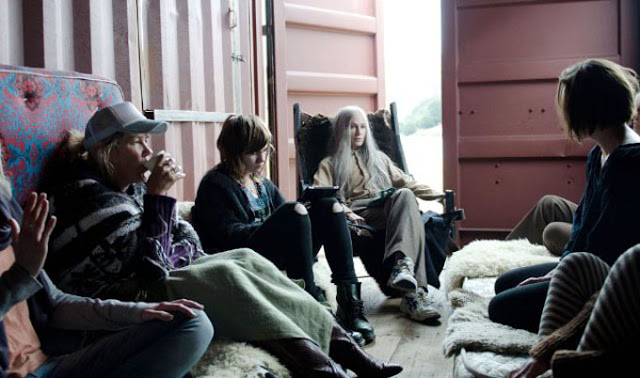 |
| Holly Hunter as GJ in Top of the Lake |
Another form of symbolism, the lake, around and sometimes in which most of the action takes place, is a mysterious force of nature. The residents of the town often comment on how the water will kill or hurt them, and there’s the sense they don’t mean just the temperature. Maybe they believe it is possessed by the Maori legend (Maoris are the indigenous Polynesian people of New Zealand) of the demon’s heart in it, which Johnno tells Robin:
There’s a Maori legend about this lake that says there’s a demon’s heart at the bottom of it. It beats; it makes the lake rise and fall every five minutes. There was a warrior that rescued a maiden from a giant demon called tipua. And he set fire to the demon’s body while it slept and burnt everything but his heart. And the fat melting from the body formed a trough. And the snow from the mountains ran down to fill it, to form this lake.
Although the legend surrounding the lake features a typical “damsel in distress” tale of a male rescuing a maiden, water is often considered a feminine element. If considered in this way, the patriarchal society of Laketop is surrounded by the feminine: the lake.
Campion may not shy away from a dark look at how patriarchal violence seeps into every corner of life, but the series also offers up hope and possibilities of resistance. As the series unfolds, Robin’s own rape at the age of 15 and subsequent pregnancy is divulged. Although she and Tui’s stories are different, both of them are strong women. Not only is Robin fighting for a resolution to Tui’s case, but she stands up against a group of sexist men in a bar who makes several jokes at her and Tui’s expense. “Are you a feminist?” they ask. “A lesbian? Nobody likes a feminist, except a lesbian.”
Yet another comment in the bar involves victim blaming as the butt of the joke. “Hey, what does it mean if a girl goes around town in tiny shorts? It means she’s hot.”
“Or a slut!” his friend cries out. Robin throws a dart into the shoulder of one of the men. In a later bar scene, one of her former rapists starts flirting with her without realizing who she is. Robin breaks a bottle and stabs him. “Do you remember me now?” she cries.
Upon running away from home, Tui embodies a familiar lone male figure, a cowboy, as she rides into Paradise on her horse, a gun slung over her shoulder. When she disappears from Paradise, Robin fears she has been kidnapped and murdered by whomever assaulted her, but Tui makes a home for herself in the bush and survives on her wits.
 |
| Robin in Top of the Lake |
Even among a patriarchal society, there are allies. In Top of the Lake‘s case, it’s men who choose not to be “alpha asses” like Matt Mitchum. Johnno, Robin’s high school sweetheart and Tui’s half-brother, still harbors guilt about the night Robin was attacked. He feels he failed by not standing up for her: “I should have helped you, but I didn’t. I was a coward.” Johnno later attacks one of Robin’s rapists, telling him to leave town. “She was 15!”
Johnno and Robin’s past is marred by painful events, but as Robin continues to work on Tui’s case, they begin to grow close again, and among all the sexual violence, Campion uses the pair to portray the pleasure of a consensual relationship.
Similarly, Tui has a male ally in her life. Her relationship with Jamie is in no way sexual, there are parallels between their relationship and Johnno and Robin’s. Jamie also feels guilt for what happened to Tui, and he literally beats himself up about it in a scene where he slams his head against the doors in his house, only stopping when his mother pulls him away. Jamie brings supplies to Tui while she’s hiding in the bush and plans to help her during the labor.
The series does not wrap up things in a tidy little bow. It may not offer solutions for eradicating sexual assault, but it does more than many previous television series and films: it exposes the truths of a rape culture and violent patriarchal society and how those who live in them choose to survive.
Lauren C. Byrd is a former post-production minion but prefers to spend her days analyzing television and film, rather than working in it. She studied film and television at Syracuse University and writes a blog, Love Her, Love Her Shoes, about under-appreciated women in film, television, and theater. She is currently writing a weekly series about feminism on this season of Mad Men
.
